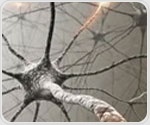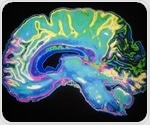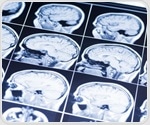| Neurology / Neuroscience - Same genetic defects shared by some patients with motor neuron disease and frontotemporal dementia |
|
|
|
|
| |
|
| |
The latest neurology news from News Medical |
|
|
|
| |
 Webinar Cryo-EM for neurodegenerative diseases: Reserve your spot! Webinar Cryo-EM for neurodegenerative diseases: Reserve your spot!
How effective is your current technique to understand the intricate mechanisms behind neurodegenerative diseases such as Alzheimer's, Parkinson's, and Huntington's disease? Join Delmic’s webinar to explore the latest research and discover how cryo-electron microscopy is revolutionizing the understanding of these diseases. The interactive webinar will feature top experts in the field.
| |
|
|
|
|
 | | |  Twelve people with persistent neurological symptoms after SARS-CoV-2 infection were intensely studied at the National Institutes of Health (NIH) and were found to have differences in their immune cell profiles and autonomic dysfunction. Twelve people with persistent neurological symptoms after SARS-CoV-2 infection were intensely studied at the National Institutes of Health (NIH) and were found to have differences in their immune cell profiles and autonomic dysfunction. | | | | |  People who have sleep apnea and spend less time in deep sleep may be more likely to have brain biomarkers that have been linked to an increased risk of stroke, Alzheimer's disease and cognitive decline, according to new research published in the May 10, 2023, online issue of Neurology, the medical journal of the American Academy of Neurology. People who have sleep apnea and spend less time in deep sleep may be more likely to have brain biomarkers that have been linked to an increased risk of stroke, Alzheimer's disease and cognitive decline, according to new research published in the May 10, 2023, online issue of Neurology, the medical journal of the American Academy of Neurology. | | | | |  Researchers summarized the main findings related to the neurobiological regulation of appetite presented at the 23rd Harvard Nutrition Obesity Symposium in June 2022. Researchers summarized the main findings related to the neurobiological regulation of appetite presented at the 23rd Harvard Nutrition Obesity Symposium in June 2022. | | | | |  As people get older, they aspire to live healthy lives as free as possible from the natural decline of cognitive abilities that occurs with aging. As people get older, they aspire to live healthy lives as free as possible from the natural decline of cognitive abilities that occurs with aging. | | | | |  A new study sheds light on the importance of microglia, the immune cells of the brain, in cognition and memory. A new study sheds light on the importance of microglia, the immune cells of the brain, in cognition and memory. | |
|
|
|
|
|
|